Jun
21
2010

or Why Idolatry is Adultery
“So [Abraham] lifted his eyes and looked, and behold, three men were standing by him; and when he saw them, he ran from the tent door to meet them, and bowed himself to the ground…” Genesis 18:2
“Then Abraham stood up and bowed himself to the people of the land, the sons of Heth.” Genesis 23:7
I’ve finally gotten around to doing the post that was to follow Stuff Is Good.
In his little torpedo of a book, The Liturgy Trap, James Jordan gives a definition of idolatry that is worth the price of the book. Firstly, it is natural that the de-eschatologised churches, (the ones that think they need no death-and-resurrections) contain icons. A church that has already arrived [1] must be able to present the unseen as already-seen:
Continue reading
Comments Off | tags: Genesis, James Jordan, Roman Catholicism, Worship | posted in Biblical Theology, Christian Life
Jun
7
2010
or The Real Hebel
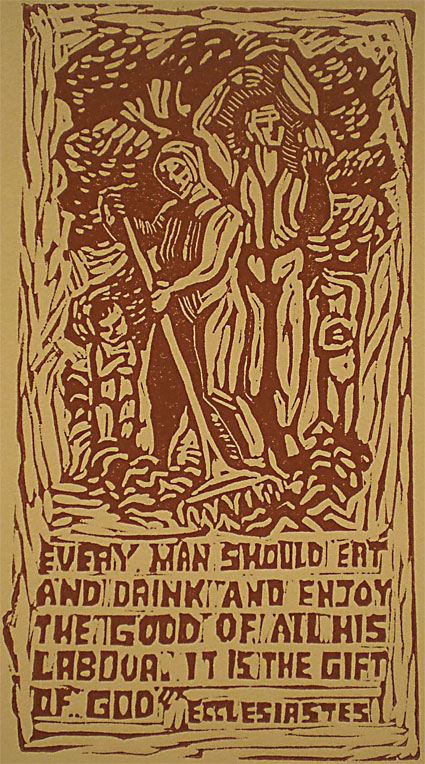
James Jordan was asked whereabouts in the Bible is the best place to start reading it:
We should start in Genesis. What we should really do is pass a law that for five years you may only read Genesis through Joshua over and over again. So you get the foundation… When the Psalms and Ecclesiastes were written, they were written for people who were steeped in the earlier Scriptures. Ecclesiastes is not some mysterious book of philosophy. Ecclesiastes is all about the Feast of Tabernacles. The Feast of Tabernacles is literally the Feast of “Clouds.” That’s what sukkoth means. You get branches down out of a tree to make a little lean-to. Those branches up on that tree are a cloud. When you make a tree-house down here out of those branches, you’ve got your own little cloud. After a week it disintegrates. But God in His cloud, in His Tabernacle, goes on and on.
Continue reading
5 comments | tags: Ecclesiastes, Feasts, Hermeneutics, James Jordan, Solomon, Tabernacles | posted in Biblical Theology, Christian Life, Quotes
Jun
2
2010
or Disputatio with God
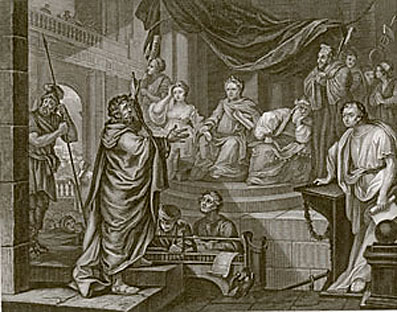
Re The Wrath of Love, Michael Micklow commented:
(Correction – not Michael Shover – Michael got his Michael’s crossed)
“The prophet did not have to remind God, so much as he had to remind himself of the love of God, and to see God’s judgment as the wrath of love.”
What about the dangerous yet successful Mosaic paradigm in Exodus 32:7-14? In this section, the prophet is able to approach, contest and sway God’s wrath (vv. 11-13). In response to Moses’ challenge, the text tells us, “and the Lord changed his mind about the disaster that he planned to bring on his people” (v. 14)…
… And what was the cornerstone of his defense? — the appeal to memory (v. 13). Moses cites the exodus event, and he further appeals to the covenant established with Abraham.
Continue reading
Comments Off | tags: Ascension, David, Habakkuk, Intercession, James Jordan, Maturity, Memorial, Moses, Psalms, Satan, Zechariah | posted in Apologetics, Biblical Theology
May
25
2010

Mother of Pearl
If you are a modern Christian and you haven’t read James B. Jordan’s Through New Eyes, you won’t appreciate all the Bible has to offer. We’ve looked at some of the meanings of the gemstones on the breastplate of the High Priest. That’s Adam. What about Eve?
Continue reading
Comments Off | tags: Esther, Greater Eve, High Priest, James Jordan, Revelation | posted in Biblical Theology, The Restoration Era
May
19
2010
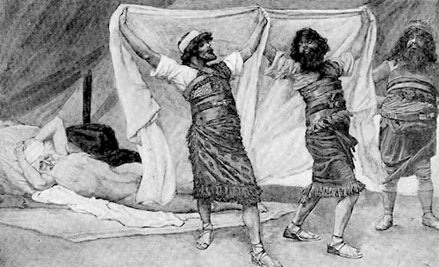
“and their faces were backwards so that they did not see their father’s nakedness” (Gen. 9:23)
James Jordan has some fascinating comments on Ham’s sin in Genesis 19:
Continue reading
Comments Off | tags: Aaron, Atonement, Genesis, Ham, James Jordan, Noah, Priesthood, Tabernacle | posted in Biblical Theology, Quotes
May
13
2010
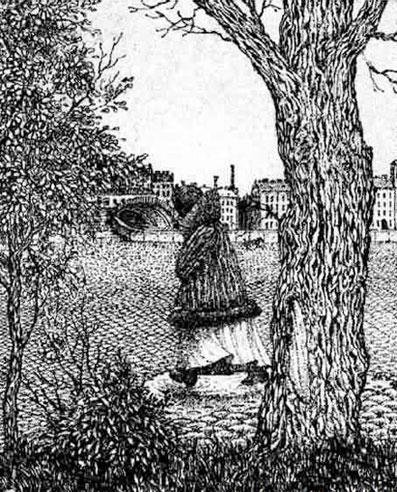
or Jesus, the Destroying Angel
James Jordan says the Revelation is like one of those old human anatomy teaching aids, the ones with layers of acetate. One starts with the skeleton and overlays the nervous system, arteries, organs, etc. They are all connected and yet each is a system that is individually identifiable. This is literature that is irreducibly complex.
Continue reading
1 comment | tags: AD70, Creation Week, James Jordan, Jericho, Jezebel, John, Lampstand, Literary Structure, Revelation, Totus Christus | posted in Biblical Theology
May
3
2010
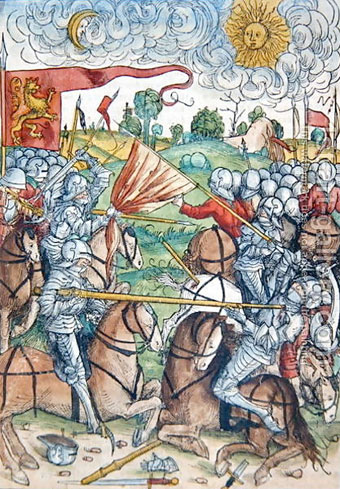
“Blessed are the meek, For they shall inherit the Land.” (Matthew 5:5)
Some more thoughts related to Walking on Water. Please read Joshua 3 before proceeding.
If the New Jerusalem is the fulfilment of the “wall of water” at the Jordan crossing, the Lamb at the centre of the city is the Ark in the middle of the riverbed, surrounded by a human government. [1] If you know your James Jordan, the Ark of the Covenant was an image of the Light that shone on Day 1. The Lamb remains at the centre of the city, surrounded by the firstfruits saints, until the last saint is redeemed and Christ hands the kingdom to the Father.
Continue reading
Comments Off | tags: Against Hyperpreterism, Ark of the Covenant, Atonement, Communion, Hezekiah, James Jordan, Joshua, Melchizedek, Resurrection, Revelation, Satan | posted in Against Hyperpreterism, Biblical Theology, The Last Days
Apr
23
2010
 “…practical, daily piety (“religious sense”) flows from liturgical piety. The sense of how man approaches God in formal public worship before His throne determines the sense of how man serves God in daily life. It follows from this that changes in practical piety are largely a reflection of changes in liturgical piety. At the same time, as we shall see, misunderstandings of practical piety feed back into liturgical piety. A practical piety that focuses on negation of the world rather than on its transformation will work to destroy the spirit of thanksgiving in the liturgy, and will also give rise to wrong understandings of what is happening during the Lord’s Supper.”
“…practical, daily piety (“religious sense”) flows from liturgical piety. The sense of how man approaches God in formal public worship before His throne determines the sense of how man serves God in daily life. It follows from this that changes in practical piety are largely a reflection of changes in liturgical piety. At the same time, as we shall see, misunderstandings of practical piety feed back into liturgical piety. A practical piety that focuses on negation of the world rather than on its transformation will work to destroy the spirit of thanksgiving in the liturgy, and will also give rise to wrong understandings of what is happening during the Lord’s Supper.”
James B. Jordan, Christian Piety: Deformed and Reformed.
Comments Off | tags: James Jordan, Liturgy | posted in Christian Life, Quotes
Mar
30
2010
or Sword Swallowers

Part 1 is here.
Then the mother of Zebedee’s sons came to Him with her sons, kneeling down and asking something from Him. And He said to her, “What do you wish?” She said to Him, “Grant that these two sons of mine may sit, one on Your right hand and the other on the left, in Your kingdom.” But Jesus answered and said, “You do not know what you ask. Are you able to drink the cup that I am about to drink, and be baptized with the baptism that I am baptized with?” They said to Him, “We are able.” So He said to them, “You will indeed drink My cup, and be baptized with the baptism that I am baptized with; but to sit on My right hand and on My left is not Mine to give, but it is for those for whom it is prepared by My Father.” (Matthew 20:20-23)
When we say “Amen,” we’d better mean it. It is a reception of the Covenant, binding us to it legally for better or worse. Ray Sutton writes:
Continue reading
Comments Off | tags: Baptism, Feasts, Herod, Isaiah, James Jordan, Jericho, Luke, Ray Sutton | posted in Biblical Theology, The Last Days, Totus Christus


































